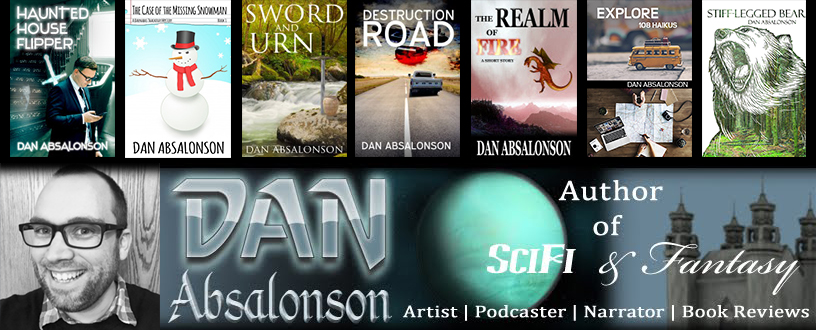 |
| Photo by Alan Light |
Ray Bradbury's ability to tell relatable tales centered around human reactions to the extraordinary has solidified the author's ranking as one of premier science fiction writers of all time. Interestingly enough, Bradbury himself didn't prefer the "science fiction" label, instead referring to himself as a fantasy writer, although some of his works offer commentary on the society in which he lived. The fact that Bradbury's works continue to inspire new generations of authors, illustrators, writers and filmmakers is a testament to his unique ability to transcend the limits of time and space and draw on universal themes that still capture the imagination today.
The recurring themes in Bradbury's works revolve more around human reactions to what's going on around them rather than hard science, allowing for broad interpretation of those themes. While Fahrenheit 451 was originally inspired by the "Red Scare" of the 1950s, its central theme of government overreach is still relevant today. Something Wicked This Way Comes explores the eternal struggle of good vs. evil through its tale of a mysterious carnival owner who uses people's' desire for wish fulfillment to his advantage - illustrating the point that strings are often attached when something appears to be too good to be true. "The Illustrated Man," a collection of short stories, deals with the complexity of the relationship between humans and technology that's still relevant in a world where people have an increasing dependence on various devices.
Bradbury often drew from his personal life experiences in his writings, which also provided commentary on the times in which he grew up. For instance, the author's periodic references to "Green Town, Illinois," based on Waukegan, Illinois, the town where he was raised, are used to illustrate the disappearance of traditional small-town America values. By using everyday scenarios, like the way in which the parents in "Zero Hour" originally dismiss their children's claims of conversing with invisible beings as nothing more than the innocence of imagination or how he taps into the teenage frustration of not being taken seriously by adults in "Fever Dream," Bradbury forms a connection with his audience by drawing from common experiences and reactions.
The timeless themes in Bradbury's stories make such tales easily adaptable to new audiences. The ABC series The Whispers (check here for local listings) borrows from "Zero Hour" with its tale of mysterious beings unleashing their paranormal powers by exploiting the innocence of Earth's children. The comic book mini-series Shadow Show presents a collection of stories by 26 writers inspired by Bradbury's classic tales, a series praised by Stan Lee, the legendary comic book writer and former president of Marvel Comics. The stories echo Bradbury's recurring themes of playing on the emotions and reactions of characters faced with implausible "realities." Coincidentally, Bradbury is credited with helping to reintroduce the EC Comics brand of fiction to the public with The Autumn People, which featured comic adaptations of eight of the author's short stories.
From the Star Wars movies and comics and the Harry Potter books and subsequent movies to TV shows like The X-Files and Lost, evidence of Bradbury's influence can be found in many of the stories that still entertain and delight audiences today. Bradbury himself once praised Steven Spielberg for his ability to blend fantasy and human emotion in movies like Close Encounters of the Third Kind and E.T. The admiration between the two men was mutual, as Spielberg lead an outpouring of praise for the author following his death. The works of Stephen King and Michael Crichton also echo themes found in many of Bradbury's classic tales - with King's Under the Dome and Crichton's Jurassic Park books and related movies serving as perfect examples of Bradbury's enduring influence. When discussing his legacy for the Paris Review, the author once summed up his approach to writing: "I write metaphors. Every one of my stories is a metaphor you can remember."


Hi thanks forr sharing this
ReplyDelete